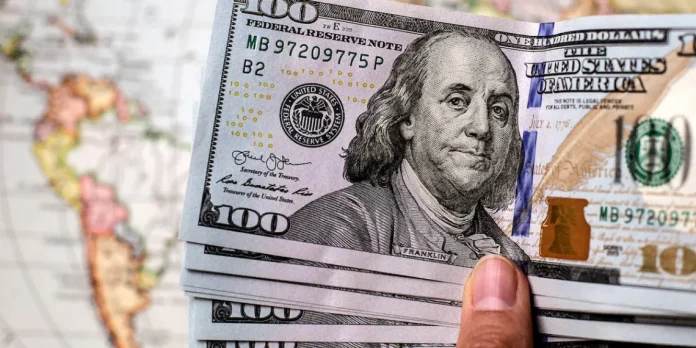
A leading economist has backed the Bank of Ghana’s decision to scale back foreign exchange market interventions, arguing that continuous dollar injections would dangerously deplete the country’s reserves.
Dr. Paul Appiah Konadu of Academic City University defended the central bank’s strategy after President John Mahama revealed that BoG had stopped injecting dollars into the forex market, a move that has generated mixed reactions as the cedi depreciated by approximately 13% in recent weeks.
The Bank of Ghana has indeed reduced its forex market intervention, with foreign exchange forward sales dropping to $822.8 million in July 2025, representing a 53.6% decline from June levels. The central bank was notably absent from the market on July 25 and 29, marking its first absence since April.
“You will only be draining your forex reserves,” Dr. Konadu explained, emphasizing Ghana’s limited dollar sources. The economist highlighted that Ghana’s forex capacity depends primarily on commodity exports, particularly gold and cocoa, rather than endless reserves available for market intervention.
The withdrawal comes at a time when seasonal demand typically pressures the cedi. Import-dependent businesses traditionally rush to secure dollars during August and September to stock goods for December sales, creating additional strain on the local currency.
Ghana’s forex challenges reflect deeper structural issues, according to Dr. Konadu. Food imports alone reached $2 billion in 2024, representing purchases that could potentially be produced locally. Oil imports present an even larger burden, consuming approximately $400 million monthly.
“A lot of the things we imported, we could have produced within Ghana,” the economist noted. “If we find a way to cut imports, we will reduce the pressure on the cedi, even without the Bank of Ghana’s intervention.”
The timing of BoG’s pullback coincides with Ghana’s limited access to international capital markets. Recent data shows the cedi trading at GH¢11.96 per US dollar at the Bank of Ghana’s interbank rate as of September 5, 2025, reflecting ongoing depreciation pressures.
Early 2025 provided temporary relief when surging gold prices created a windfall that enabled BoG to supply $1.4 billion to the market in the first quarter. However, Dr. Konadu warns this approach cannot be sustained year-round without risking reserve depletion.
The economist advocates for structural reforms rather than continued market intervention. Reviving Ghana’s oil refinery could significantly reduce the monthly $400 million fuel import bill, while boosting local food production would address the $2 billion annual food import expenditure.
“Responding to that caution by the IMF is in order,” Dr. Konadu said, referencing international concerns about unsustainable intervention practices. The International Monetary Fund has consistently warned developing countries against depleting reserves through excessive market interventions.
The debate reflects broader tensions between short-term currency stability and long-term economic sustainability. While forex interventions can provide temporary relief during periods of extreme volatility, they offer no permanent solution to underlying import dependence and limited export diversification.
Ghana’s experience illustrates challenges facing commodity-dependent economies worldwide. When global prices favor key exports, reserves strengthen and intervention becomes feasible. During normal market conditions, however, sustained interventions risk creating unsustainable pressure on national reserves.
For Dr. Konadu, the solution lies in import substitution and local value addition rather than continued reliance on forex interventions. The economist argues that Ghana cannot “buy” a stable cedi with dwindling reserves when fundamental economic imbalances persist.
The Bank of Ghana’s strategy shift signals recognition that forex interventions represent emergency tools rather than ongoing policy instruments. As global economic conditions remain uncertain, preserving reserves while addressing structural challenges may prove more sustainable than short-term market interventions.
Source: newsghana.com.gh










